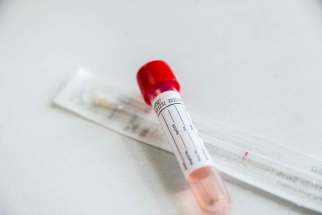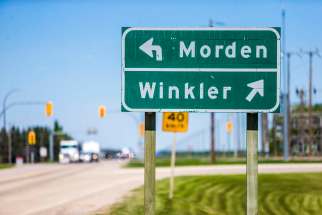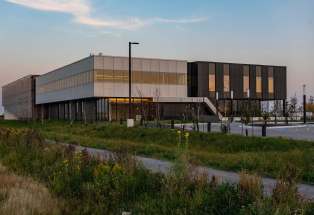Canada’s border testing prohibitive
Read this article for free:
or
Already have an account? Log in here »
To continue reading, please subscribe:
Monthly Digital Subscription
$0 for the first 4 weeks*
- Enjoy unlimited reading on winnipegfreepress.com
- Read the E-Edition, our digital replica newspaper
- Access News Break, our award-winning app
- Play interactive puzzles
*No charge for 4 weeks then price increases to the regular rate of $19.00 plus GST every four weeks. Offer available to new and qualified returning subscribers only. Cancel any time.
Monthly Digital Subscription
$4.75/week*
- Enjoy unlimited reading on winnipegfreepress.com
- Read the E-Edition, our digital replica newspaper
- Access News Break, our award-winning app
- Play interactive puzzles
*Billed as $19 plus GST every four weeks. Cancel any time.
To continue reading, please subscribe:
Add Free Press access to your Brandon Sun subscription for only an additional
$1 for the first 4 weeks*
*Your next subscription payment will increase by $1.00 and you will be charged $16.99 plus GST for four weeks. After four weeks, your payment will increase to $23.99 plus GST every four weeks.
Read unlimited articles for free today:
or
Already have an account? Log in here »
Hey there, time traveller!
This article was published 05/11/2021 (1502 days ago), so information in it may no longer be current.
When the U.S. land border opens to non-essential travellers on Monday, it’s unlikely there will be long lineups of people waiting to cross into Canada. It will be too troublesome and too expensive to approach the border, given the extreme COVID-19 testing that is mandated.
The problem is on Canada’s side, not the U.S. side. Driving from Canada into the U.S. will be a simple matter requiring only proof of full vaccination, but the return trip from the U.S. into Canada will require a negative molecular test for everyone in the vehicle. The extra testing costs hundreds of dollars and is time-consuming to obtain.
Canada is setting the bar too high, according to business and tourism groups lobbying the federal government to consider alternative tests that are less expensive and more rapid. Ottawa should pay heed. There are alternative tests that would provide a more reasonable balance of opening the border while still blocking travellers who are COVID-19-positive.
The costs of molecular tests, such as the polymerase chain reaction (PCR), are unregulated and set by private companies that charge anywhere from $150 to $450 per test, and even more if results are needed quickly.
The added cost can be enough to deter the American tourists who were a crucial source of income for Manitoba’s tourism industry before COVID-19 restrictions shut the border to recreational travel. It can be a deal-breaker for the Manitobans who are ready to resume traditional weekend jaunts to North Dakota or Minneapolis, but not if travel costs are multiplied by molecular testing. The tests can also be a financial burden for Manitoba snowbirds, many of them seniors on fixed incomes, who head south to U.S. hot spots at this time of year.
Groups that have encouraged the federal government to lower the hurdle to cross into Canada include the Association of Canadian Travel Agencies and the Tourism Industry Association of Canada. Such organizations point out tourism to Canada was a $105-billion industry employing about two million people before the pandemic; only a fraction of the industry has recovered, leaving about 500,000 people still unemployed.

In response to calls to consider alternatives to mandatory molecular tests, chief public health officer Dr. Theresa Tam said recently the government is reviewing the mandate, but it remains.
“Canada is still in many areas battling the fourth wave,” she said. “While vaccines reduce the risk, it’s not 100 per cent and that protection could wane or be reduced over time.”
For the good of the Canadian tourism industry that needs American visitors, and for the good of Canadians who are anxious to reunite with family and friends in the U.S., it’s to be hoped the federal government finds a way to block COVID-19 carriers at the border with testing that is less expensive and easier to obtain.
One alternative is to require travellers entering Canada by land to meet a two-pronged requirement: provide proof of full COVID-19 immunization, and also provide results from rapid antigen tests. These tests are called rapid for good reason — results are available in as little as 15 to 20 minutes — and they are widely available at sites such as drug stores at a fraction of the cost of molecular tests.
The rapid antigen method is widely used as mandatory job-requirement testing for public-sector employees who are unvaccinated. It’s considered a satisfactory screening method for the unvaxxed Manitobans caring for children and vulnerable people in hospitals and nursing homes. It’s good enough for fully-vaxxed travellers who want to enter Canada.







